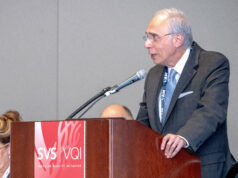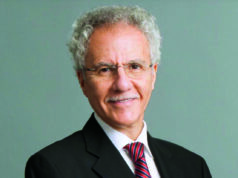
After two years of careful deliberation, the Society for Vascular Surgery (SVS) Executive Board (EB) has voted against pursuing the creation of a free-standing Vascular Surgery Board (VSB), opting instead to maintain the current federated board structure under the American Board of Surgery (ABS).
SVS President Keith Calligaro, MD, announced the decision following a discussion and vote on July 25–26, shared on the SVSConnect platform. The EB cited two primary reasons for its decision.
First, there was no decisive majority from the membership in favor of the initiative. The EB concluded that it would be inappropriate to divert significant SVS resources from other strategic priorities, such as branding, advocacy, education and vascular verification without broad consensus.
Second, fewer than half of the survey respondents expressed a willingness to contribute financially to the establishment and maintenance of a free-standing board. Given the significant costs involved and limited financial backing, the board deemed the initiative unfeasible.
“We recognize that regardless of the EB’s recommendation, half of the survey respondents may be disappointed,” Calligaro said in the SVSConnect post. “The SVS leadership fervently implores all members to remain unified and continue to support our parent vascular society. We remain committed to advancing our specialty, fostering unity and positioning vascular surgery for a strong future.”
This initiative was formed under past SVS President Joseph Mills, MD, who established a task force to explore the potential benefits and drawbacks of an independent board. Chaired by fellow past President Michael Dalsing, MD, the task force included a mix of members, both in favor of and opposed to the proposal. Under the continued leadership of Immediate Past President Matthew Eagleton, MD, the group met monthly for over a year, including a two-day in-person session at the SVS headquarters in Rosemont, Illinois.
The Society enlisted an external financial expert to assess the financial implications of a free-standing board, estimating costs at $5 million over two years or $10 million over four years. A polling firm conducted a non-binding survey of SVS members, with nearly 1,000 members responding, representing a 30% participation rate. The results revealed a near-even split, with 49% in favor of a free-standing board and 51% preferring the current federated model.
Calligaro and the EB emphasized that while this matter is considered resolved for now, it may be revisited should significant developments arise. A subcommittee will be formed to prepare essential components for rapid application if the need emerges.












